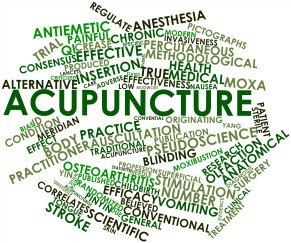303- 667-4338
What Does Acupuncture Treat and is it Right for Me?
By Dr. Jack Schaefer MAcOM LAc
In the last several years people have become less satisfied with their modern western medical providers and solutions which has led them to begin looking toward alternative medicine for solutions. However, this search has led to a new questions, “how do I find the right alternative medical system for me and will it help my condition?” One of the best solutions to this problem is acupuncture and Traditional Chinese medicine. This amazing system has the ability to work with many different types of health-related problems by treating the person as an individual and not just treating the disease. This article aims to help you find out just what types of problems can be treated with acupuncture and Traditional Chinese medicine.

Most people in the west think that acupuncture works with mainly with pain, or that it is a fringe type of treatment that can’t treat anything at all. While it is true that acupuncture can be a phenomenal treatment tool for pain and that pain is what most people in the west begin seeing an acupuncturist for, there are many different problems that acupuncture can effectively treat. Even more, the World Health Organization (WHO) and the U.S. National Institute of Health (NIH) have approved acupuncture and Traditional Chinese Medicine to treat many different diseases that are not pain related at all. These can include things like adjunct treatments for nausea during cancer treatment, menstrual cramps and syndromes, and fibromyalgia, and digestive disorders among many others. In addition, there are many groundbreaking studies showing that acupuncture can even be helpful in treating complex problems like infertility as well as a host of other difficult problems.
The following is a list of very commonly treated diseases and health-related problems that Acupuncture and Traditional Chinese medicine can treat quite effectively. This list isn’t exhaustive, but does cover a large number of them.
Disorders of bones, muscles, joints and nerves such as Bells’s palsy, arthritis, osteoarthritis, rheumatoid arthritis, tendonitis, tennis elbow, carpal tunnel syndrome, bursitis, neuralgias, migraines, dizziness, low back pain, neck and shoulder pain, headaches, spine pain, sciatica, muscle spasms, facial spasm, numbness and tingling, fibromyalgia and fascitis
Sleep and stress disorders such as insomnia and fatigue.
Circulatory disorders such as hypertension, hypotension, angina, pulmonary heart disease, cardiac neurosis, palpations, atheroschlerosis, and anemia.
Gastrointestinal disorders such as food allergies, abdominal pain, peptic ulcers, constipation, chronic diarrhea, indigestion, anorexia, gastritis, nausea and vomiting, biliary colic, dysentery, ulcerative colitis and irritable colon syndrome.
Gynecological disorders such as irregular, heavy, or painful menses, PMS, polycystic ovary syndrome, fibrocystic breast disease, menopause, morning sickness, malposition of fetus, induction of labor, infertility, herpes zoster, hypo-ovarianism, and lactation deficiency
Urogenital disorders such as stress incontinence, urinary tract infections, retention of urine, renal colic, prostatitis, and sexual dysfunction.
Respiratory disorders such as emphysema, sinusitis, bronchial asthma, whooping cough, allergies, and bronchitis. Endocrine disorders such as diabetes, hypo/hyperthyroidism, and obesity. Addictions such as to alcohol, nicotine, and drug addiction.
Depression including depressive neurosis, chemical or otherwise.
Skin disorders such as acne vulgaris, pruritus and neurodermatitis.
Myofascial pain, including crainomandibular disorders and temporomandibular joint dysfunction (TMJ).
Stroke rehabilitation
Postoperative pain
Performance enhancement such as athletic and strength assistance.
Supportive therapy for many other chronic and painful debilitating disorders.
Adverse reactions to radiotherapy and/or chemotherapy
Pain in dentistry (including dental pain and temporomandibular dysfunction)
If your specific condition was not included in this list the best thing to do is contact an acupuncturist in your area and talk with them. Because of an acupuncturist’s unique way of diagnosing and treating problems there is a good chance that you can be helped. Millions of people worldwide use acupuncture and Traditional Chinese medicine to heal their illness. The acupuncturist should be able to let you know, after a consultation whether acupuncture and Traditional Chinese medicine is right for you. The beauty of a consultation is that you have nothing to lose! It gives you the opportunity to get the information you are seeking and allows you to make choices for yourself